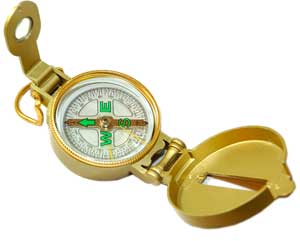Experiencing Our Feelings - Counselling London
(See also Range Of Specific Feelings & Emotions)

Validating, Exploring Our Range Of Feelings Our moment by moment feelings are our inner guidance, whether or not they are caused by others, events and they offer invaluable information. They let us know whether a situation is right or wrong, whether we are loving or unloving to ourself, or others are loving, unloving to us. They help us cultivate both empathy and emotional resilience, gain clarity on what we are feeling and why we are feeling the way we do. (It was Nick Cave who wrote, "Feelings are meant to be felt - that's what they are for. We heal by acknowledging our emotions and test our heart's resilience by lingering with the unbearable".) Understanding ourselves and others, our contradictory and sometimes contrasting feelings and thoughts, whether we are too in touch and overwhelmed or out of touch with how we are feeling, may be important for us, as may tracking those feelings as if they come from nowhere, disidentifying from our feelings when we need to. Imagining the inner knowing of our feelings as our inner child and validating the information they are giving us, loving and caring for these feelings may support us. On the surface things can be OK yet underneath we may experience powerful feelings, e.g. fear, sadness, anger. For those of us who are consumed, absorbed and swept up by feelings (and these may have a biological component), containing them may be a challenge. Blocked inside, accessing and expressing feelings, releasing our emotions may be a different need for others. (We may have been brought up not to express certain feelings or have an unspoken "no feel" rule to some of them.) Discovering the truth of our feelings, compassionately learning from them, what they are telling us - even our painful ones - willing to feel these (without ignoring, rejecting, judging them) may be important. Our feelings arise by the chemicals created through our thoughts. Staying aware of how we are causing our feelings, through our perception, what we tell ourselves (see also Unhelpful, Redundant, Inhibiting Rules, Loyalties, Oaths, Sacred Cows, Obligations, Duties, Taboos, Cultural Conventions) can be challenging, yet can also change how we feel. We may also want to recognise our emotions and the impact they have with our equilibrium & others around us. Being open about what is loving to us & others, rather than closed to protect ourself from the pain of life may be a further need. How we experience, treat, express & take responsibility for the spectrum of our feelings & ourself can be opened up in the counselling & psychotherapy. The therapy may therefore include exploration of our presence, emotional self-awareness, our free will, including how we can support our sense of worth, enhancing life's joys & pleasures. Finding ways to attend to our feelings - moving through them, to integrate, regulate & manage them, so we can act and react in the world, communicate well, be creative, can also be explored in counselling & psychotherapy as may training ourselves to choose whether we banish or embrace our feelings - the language of our body.
Moving through feelings is possible.
Feelings In Our Relationship Some of us may fear rejection, have abandonment issues. We may crave attention. For some, envy & jealousy may at times be overwhelming. Some of us may have become emotionally dependent on our partner, others may deny we have any dependency needs. From our wounded place we may try to control and make others responsible for our feelings or take responsibility for their feelings - see also Codependency (Co-Dependency) - Caretaking. (Stating "You can't be responsible for my feelings, but this is what it made me feel" can be a useful remark.) Some of us may struggle expressing feelings. We may have got into a habit of projecting onto our partner feelings in us we would not rather have, acknowledge. Many of our feelings may be unconsciously communicated, picked up by our partner. Some may not want to get so caught up, or drawn into, our partner's feelings. Being caring and looking after ourself, staying calm, when others around us are being very emotional, may be important for us. (See also Relationship Style, Attachment Patterns)
The said can't be unsaid.

Over-Talking, Oversharing, Floodlighting - Whether Or Not To Share Our Feelings Most of us have innocently shared our feelings (or exaggerated, over-emphasised, accentuated things) with others and we can feel surprised when they backfire on us - this includes texting, emailing, social media, online chat, internet communication - using emojis ☺ which can sometimes simplify things (see also Over-Talking, Floodlighting, Oversharing - Balance Between Withholding Or Sharing All Our Thoughts). Living in the moment without awareness, reflection, some of us may be emotionally hijacked, over-share our feelings - spilling out at times and oversharing feelings may become our way of relating, blurting out our stream of consciousness (see also Overtalking, Floodlighting, Addicted to Talking). Fear of missing out (FOMO) can be one reason we brainstorm others. When we share all our feelings, vulnerability quickly to another, this can be like shining a floodlight in someone's face - floodlighting them. In the need to be transparent, we may believe that being true to ourselves means we have to share all our feelings, experiences, every moment, always be 100% transparent. (Some of us may need stimulus, overstimulate ourselves, overshare our feelings, which may be related to our nervous energy or certain considerations, e.g. ADD/ADHD, having an over-active thyroid.) We can share our feelings for very different reasons (sometimes just too much at times). We may feel empty on the inside or seek social approval, validation, affirmation, reassurance, confirmation, permission, recognition, appreciation, praise, attention, adoration, admiration, adulation, acceptance, trust. We may want to justify ourself, over-explaining ourself, especially if we feel wronged, judged, to get someone to make us feel better with an intention to control, by pulling or dumping on others, our uncomfortable, unwanted feelings - for example trying to control them to make us feel better by letting others know what we are feeling (e.g. stressed) and want them to do something about it. (They in turn may become defensive, withdraw, get irritated, become angry or judgemental or struggle to tolerate our uncomfortable feelings - see also Drama Triangle of Victim, Rescuer, Persecutor.) Taking responsibility for our feelings, it can help to say something like "You can't be responsible for my feelings, but this is what it made me feel". In our relationship we may want to be truthful and emotionally honest, believing that by having to say everything we are authentic, we may be in the habit of sharing all our uncontained feelings, holding nothing back, struggling to filter them, contain them (see also Impact Of Language, What We Say, The Energy & Power Of The Words We Use).Yet sometimes speaking all our truth, in every moment can destroy relationships. A tactful approach and adapting to situations may be missing. Self-control, emotional resilience, managing our internal dialogue may be an issue for some, so we no longer give our power away, distinguishing between what's private, what's secret, for others. Self-trust may be in short supply. Sensitive at times, we may wear our heart on our sleeve yet acknowledging that we all have private lives, don't have to share all our feelings or always be tearful when we don't need to be (see also Boundary Setting Counselling - Loose, Porous Or Uncontained Boundaries). The intention we have when we share our feelings can shape the outcome. (See also What We, Others Observe - Giving, Receiving Feedback To & From Others, Our Partner)
Remember not only to say the right thing in the right place, but far more difficult still,Benjamin Franklin
to leave unsaid the wrong thing at the tempting moment.
Oversharing Our Feelings In Stressful Situations Some of us may need stimulus, overstimulate ourselves. Hyper-emotional at times, maybe living from our eternal child or feeling hurt from our wounded self and allow all our feelings to spill over especially when we are hungry, angry, lonely, tired, lost or stuck, traumatised, feel shame, or experience loss, separation, times of conflict, feeling under threat. Some of us may share more than we need when we are too comfortable, too nervous, fear invasion or eager to make good impressions. In oversharing, we may give our power away. We may need to recognise what's appropriate to share and what's not. Others may end up pushing people away. We may also personally take someone's unloving behaviour towards us. There is a difference between saying "I am feeling very stressed" - pulling on others, our partner to do something about it as opposed to saying "I'm feeling very stressed and I'm going to go for a walk - taking responsibility for our feeling. We can let others know what we are feeling (e.g. stressed), ask for help in what our stress may be about, or tell them what we are going to do about it, by taking responsibility for our own feelings, learn and being compassionate towards ourselves and the others' unloving behaviour, allowing any sadness to move through us and this can help support our self-esteem. Managing, regulating and transmuting our emotions, filtering our feelings, utilising our personal boundaries, may be important for us. (See also Giving Constructive Feedback To Others)


Overwhelmed By Feelings - Managing, Balancing, Overseeing & Transmuting Our Emotions Some of us may be overwhelmed by thoughts, numb our feelings, watching them from afar or be overwhelmed by feelings and it is our experiences that produce emotions. Alongside abandoning ourselves organisationally, our emotional overwhelment can manifest as anger or numbness. Our feelings are in the moment and can change, even be contradictory. When we are constantly ruled by our emotions as if on a merry-go-round, captive to feelings, it is viewed by some as an emotional addiction. (Certain "conditions", "labels" as ADD/ADHD, having an over-active thyroid or if we are highly sensitive what some people call an empath, may also affect our outpouring of emotions or emotional absorption, where an emotional experience can pull in other associated feelings, intense emotions.) Triggered by our stress, fear, anxiety we may experience irrational emotions, irrational feelings and want to understand where they are coming from to overcome them. Sometimes our emotions can leak and spill out, leaving us vulnerable, disorganised, messy, chaotic at times. It can be as if we experience waves of emotion (e.g. sadness, anger - see also Anxiety) when our feelings arrive upon us, especially in our relationship. This can affect our behaviour, procrastination. Whether or not to share our feelings may be a dilemma. We may be faced with a choice of acting like King Canute or riding with and embracing the passing waves, learning to go with the flow - even in turbulence. As if emotionally hijacked, the whirlwind of our intense emotions may be all at sea. We may feel lost at sea, and if not careful, drown in emotional flooding. We can become hijacked by our emotions, as if remaining in a drama, hyper-emotional at times - letting them rule us (see also Our Painbody). On the edge at times, we may feel fragile. In order to manage, regulate, transmute our emotions (see also Healthy Ways To Regulate Our Feelings, Emotions), core painful feelings we may want to slow down, call upon our inner discipline, take charge of our emotional security, dramas and have emotional control so we also feel anchored, centred, grounded, solid in our body, from our loving adult (not our wounded past or place of suffering because we continue to be stuck in the past) have choice in observing our emotions, rather than running on them, disidentifying from them so we don't have to become the feelings we are feeling or act out our feelings, but to also think, reflect on what really matters, consciously noticing our emotions (and any negative thoughts) - naming them and noticing our behaviour, reactions, being curios if they take us closer to or further away from our values. The counselling may explore tuning into our body as useful cues to our emotional overwhelment, the experience of our core, authentic, existential life feelings alongside what gives us peace of mind, enables us to see the bigger picture. (See also Reframing Health - Body, Feelings, Mind, Hereditary Genes, Epigenetics, Environmental Connection, Self-Regulation)
The power of reflection allows us to approach rather than withdraw, from, whatever life brings us.Daniel Siegel
And when we learn to "stay with" a feeling, to give it its time in awareness, then we discover that feelings -
even very strong and threatening feelings - first arise and then dissipate like waves breaking on the shore.

Our Emotional Sensitivities As if in a sea of emotions, some of us can be hyper-emotional, take things personally, easily hurt, disrespected, controlled, abandoned or invaded (see also Caught In-Between Fear Of Rejection, Separation, Loss, Abandonment & Fear Of Engulfment). For details see Our Sensitivities - Pushing Each Other's Buttons, Counselling London.

Familiar Feelings That We May No Longer Want Some feelings can become embedded. The therapy may also examine our "feelings template", and what other feelings we may have, besides the ones we are aware of (see also Role Of The Unconscious - "The Yet To Be Revealed"). We may allow certain emotional memories to take us over and as our energy becomes heightened (often felt in our body), these trigger old patterns of thoughts. Resentment may be something else we hold on to, as we struggle to forgive. Feelings themselves can have an addictive element, like sadness, happiness, fear or rage, as this emotion becomes our state of being (as can complaining). Familiar feelings we may not want may include loneliness, heartbreak, helplessness. Some of us may continuously feel pain, battle with emotions, as if they are attached to us, stuck in our body (see also Our Painbody) often from our wounded past as if we continue to suffer because we get stuck in the past. We may overlook that we are OK in-spite of what we feel. Integrating our feelings yet being willing to feel our core painful feelings, find our way through our pain, expressing, understanding and letting go of our pain may be challenging as may taking charge of our own emotional security.
Insanity is doing the same thing over and over again and expecting different results.Rita Mae Brown
Responding To Our Likes & Dislikes All of us have likes & dislikes, and these don't have to limit our experiences. We don't have to like everything we do, yet by doing certain things, we broaden our minds. What we like in the long run may not always be good for us, conversely, what we don't like may turn out to be exactly what we need. Some of us are able to gradually like our dislikes, because it serves a greater good in us or others. Taking risks sometimes may be our challenge.
Moodiness, Emotional Mood Swings, Severe Mood Changes, Low Moods, Dark Moods Where our thoughts go, our moods follow, so not only do our thoughts impact on our moods but also our moods bring changes to how we see the world, our thoughts, judgements, actions and we may struggle to have perspective over our emotions. Our low moods can be brought on by stress, anxiety, fear, external, social, environmental factors. Some of us allow others to dictate our moods and we too may be affected by others' moods. Our moods change, vary, can test us (compounded if we are hungry, cold, tired, irritated, hormonal). We all experience different moods, some level of mood swings, up and down moods, yet when they become severe, last a long time, we may get stuck in them. (They are also contagious - affecting others, where we also have a choice to spread good moods, elevated emotions.) Some of us can look for things to fuel, reinforce a certain mood. Our moods are a temporary state of mind & usually pass - what we feel at one moment, not only affecting us, but others around us, so surrounding ourselves with supportive others can be helpful. Especially when our helter-skelter moods change like the weather (see also Taking Charge Of Our Emotional Security, Our Or Others Dramas - Emotional Control). Tuning in, being aware of what we are feeling (the subtle mood changes) & addressing why we are feeling what we are feeling, can inform & support us when choosing what to do with our mood, exploring the solutions available, and how we want to appropriately respond to others. We may have anxious moods, irritable moods, grumpy moods, empty moods. We may feel happy, overjoyed, sad, depressed, maybe going to some dark place, experiencing dark moods (see also Inconsolable, Dark Night Of The Soul), some sort of existential despair, struggling to find meaning, purpose in life, affecting our wellbeing. Managing our moods (so we don't blame, criticise others - including our partner), finding & working our way out of bad moods - rising above them, doing things which feel good rediscovering our light-heartedness, playfulness, carefreeness, laughter, fun and our sense of humour may lift us. Recognising a point when we need to "put the brakes on" or say to ourselves "Enough's enough", and giving a deadline may support us (see also Emotional Responsibility, Emotional Regulation, Emotional Energy, Emotional Health, Emotional Wellbeing, Emotional Evaluation, Emotional Strength, Emotional Resilience, Emotional Intelligence, Emotional Growth, Emotional Maturity - Being Emotionally Connected, Left Overwhelmed). When in a better mood we may want to consider understanding what put us in a bad mood in the first place - what triggers, thoughts shape our moods, what choices we can make the next time to put us in a different mood, elevated mood.
I'm not OK, I'm not OK, and that's OK
Things Not Sitting Right For Us When things just don't sit right for us we have options of continuing sitting on them, ignoring them, or resolving them. Sometimes things resolve themselves, yet other times fester and grow, it we don't respond to them.

Feelings & Senses - Our Guide At a basic level our instinctive feelings, intuition and senses inform us whether things external to us are safe, unsafe, loving, unloving, etc (see also Internal Safety, Inner Security). They can tell us if we are heading in the right direction - whether we are off or on track in our thinking, behaviour. We are full of feelings when a child (not good/bad ones - just feelings) and how our feelings were responded to, may affect us now. Some of us may have left our feelings behind. We may have learnt to hide, avoid certain feelings (see also Overwhelmed By Feelings - Managing, Balancing, Overseeing & Transmuting Our Emotions). Our feelings can also let us know if we abandon ourselves or have self-compassion. Just as we feel the senses, physical sensations, reactions in our body, so too we may need to respond in similar ways with our emotional senses & feelings. When, for example, we have a persistent physical pain, this stimulates us, informing us we need to do something, check it & respond. Initially in our body we may feel a sensation, notice it, ascertain what's happening, find out what sort of attention we need to give it, how to actively respond (maybe massage it, exercise, move the energy), so the pain dissolves, when we give it the right conditions to heal. Experiencing the stimulus of our emotional feelings also give us pointers towards our direction. Observing our feelings & senses, even our uncomfortable emotions, simply as our moment by moment experiences, give us up to date information, momentum and what we want, guiding us, informing us towards our direction. Trusting and being in touch with the ebb and flow of our feelings - feeling them fully, enables us to be freer to then choose to express what we feel, feel what we say. Some of us may struggle to accept what we are feeling without judging them as good, bad or having to endure them, maybe wanting them to go away, which may block the energy of feelings, cutting out useful information, stopping us moving forward. Others may struggle to freely experience our feelings as indicators of where we are right now yet not totally allow our feelings to be a definition of who we are. We may want to grow with our feelings, rather than avoiding them. (See also Emotional Responsibility, Emotional Regulation, Emotional Energy, Emotional Health, Emotional Wellbeing, Emotional Evaluation, Emotional Strength, Emotional Resilience, Emotional Intelligence, Emotional Growth, Emotional Maturity - Being Emotionally Connected, Left Overwhelmed)
It is only by following your deepest instinct that you can lead a rich life, and if you let your fear of consequenceKatharine Butler Hathaway
prevent you from following your deepest instinct, then your life will be safe, expedient and thin.

The Gift Of Intuition & Inner Knowing - Gut Feelings, Hunches, Instinct, Improvising There is a human instinct to search for happiness, peace of mind, meaning, our potential. Listening to ourselves, our senses, discerning between what our intuition, gut feelings are telling us and what conjecture, fear, anxiety can be explored in the therapy. The power of our awakened intuition, instinctive feeling sense - our inner knowledge (intrinsically connected to the innocence of childhood, spontaneity and surprises), can be experienced as a direct sense of knowing without rational thought, analysis. Our intuitive knowledge, instinctual feelings from within our highest good may have been mistrusted, lost or crushed in childhood (see also Relationship Style, Attachment Patterns). We may have learnt to block, deny our instinct, gut feelings in order to get our needs met in our early years - see also Non-Responsiveness, Empathic Breaks & Frustrations In Our Early Life. (As a compensation this adaptation can lead now to physical symptoms, relationship issues, unhelpful habits or addictions, a sense of alienation, disconnection from self.) Some of us may be in touch with our instincts yet not act on them. (Others can sense our gut feelings, instincts, yet as the result of past traumas we may disconnect, not listen to them or trust them.) Trusting our inner knowing can be challenging when close to some people, or there is someone we look up to, respect tells us what is best for us (even if they may be more knowledgeable, an "expert", spiritually connected ). Truth can also come from others, yet we need to tune in inside, checking if this feels right and true for us, that it's not just someone else's truth. When coming from our inner authority we can learn to trust our own inner knowing, so we don't feel invaded or imposed upon by others imposing their own beliefs on us, telling us what we should be doing. Ignoring our intuitive self, we may be stuck in our head and therefore not believe the valid information of what we sense energetically, vibrationally when things just don't feel right (or feel very right - true for us). Moving away from just logic, the clutter in our head, towards what we instinctively want and desire may come from a more intuitive place than what we think we want or should, ought, must, always want. These affect the quality of our will, motivation. Sometimes our sensitivities, intuition help inform us to instantly respond, enabling us to spontaneously improvise. And our intuitive responses and felt sense (see also Interoception - Interpreting Our Body Signals) may also let us know where we are, help us understand things with more accuracy, help us make informed choices, point towards our inner direction. Similar to the satellite navigation system in what has been called the GPS of the soul, the compass of our intuition informs us where we are, the direction to take and how to reach it, helping us understand our self and others more accurately. This internal quality of inner guidance in us "knows" the way, what we need, what's right, supporting our self-trust and can help us make better decisions, understand and express ourselves more accurately, give us valuable guidance, feedback, insight. There is an unattributed saying, "The heart knows before we do" and the gift of our intuition can be experienced as a guiding, caring nature (sometimes in a harmonious state of flow) and at times it can seem to appear from nowhere, raising our frequency, nudging us towards creativity, change as if we are in tune with something larger than ourselves or are guided or supported by a spiritual source, spiritual connection. It was Carl Jung who remarked, "Intuition gives outlook and insight; it revels in the garden of magical possibilities as if they were real." We may want to listen, notice what we resonate with - our vibrational energy, tuning in to our intuition or intuitive nudges, so we pick up, send, trust our instinct, gut feelings (neuroscience research informs us we have a "brain" - an adaptive, functional, neural network in our gut). Our intuitive antennae, first impressions, can be experienced in times when something just doesn't feel right or warns us of something, and conversely, moments we are in the right place at the right time, when we feel a sense of presence within us, supporting our highest good. It can be as if we know something without knowing how we know it. Utilising our intuitive insight helps us "read the room", make sense of all our senses, discerning what feels differently in our body, what's stirring inside, and to make better choices by following the trail of our experience in each moment, immersing ourself in the slipstream of our unfolding awareness, consciousness. Sensing, listening to this inner voice, our emotional intelligence, inner wisdom with confidence may support us. Sometimes we may have a knee-jerk response, a hunch, gut reaction to things and listening to, trusting our gut feelings, taking a leap of faith can at times be exactly what we need to do, be accurate and helpful to us without talking ourself out of this sense. It can be as if we can trust what we need to do because our instinctive gut feeling, instinctively "knows", which supports our authenticity. As Robert Graves says: "Intuition is the supra-logic that cuts out all routine processes of thought and leaps straight from the problem to the answer."
I believe in intuition and inspiration. Imagination is more important than knowledge.Albert Einstein
On other occasions we may question our intuition (See also Diverting, Changing Responses To Our Drives, Urges, Impulses, Passions, Desires, Aspirations, Energies, Creativity) There can be a difference in us between our feeling truth & knowing things. When the time is right (and often we know this) valuing, listening, appreciating, trusting & following our intuition & senses, a place deep inside of us not only of reason, as if our will is aligned, may be exactly what we need to do - acting on our own intuition and taking risks in the process, yet other times not so. (Supported by our home truths, conscience & personal integrity.) Coming to our own conclusions may support us. Our intuition may be captured by our moods, fear and anxiety or neediness, and therefore it may not always be wise to trust our first impressions. If we are coming from a wounded place inside, maybe emotionally fearful, the choices we make may have more negative consequences or be linked to magical thinking maybe false mind-reading. Others may start fortune telling, because things don't feel right, yet often it may be because we are seeing things through fear (or maybe neediness). Instinct not only has a biological component but also has a fear component, is linked with the amygdala part of the brain and its function is to act as a survival mechanism (i.e. fight, flight, freeze). These reactions can be instinctively entirely appropriate or can unhelpfully dominate and overrule our intuition, instinct, gut feelings. Sometimes it may benefit us to act counter-intuitively away from our distractions, doubts, concrete thinking towards our intuition. However, some of us may be led by our intuition, instinct, no matter what and sometimes our gut reactions or so called "instincts" may not be right, and we can't always trust them (maybe compounded if we are hungry, angry, lonely, tired, lost or stuck, traumatised, under threat, feel shame, experience loss or separation, are grieving, mourning, or in times of conflict). Testing them, we may need to validate & verify our intuition, instincts, discern where they come from, double check our gut feelings, supported by all our senses, alongside our logical and rational thinking, our reasoning and the information we can gather around us, assessing how this sits with us, our values, goals before we come to conclusions, so we make decisions that don't come from other aspects of us (by discerning our projections, perceptions, attitudes, searching for things which support our beliefs, our wishes, desires, hopes, old templates, assumptions, prejudices, biases or unconscious aspects). Taking charge of our instincts, so we control them, may be important (see also Our Biological Drives, Instincts, Urges, Impulses, Passion, Desires, Aspirations, Imagination). When we have instinctive feelings (and for some these may live in our shadow), we still have a choice of whether to act on them or divert our instinctive energies in creative ways and these may include noticing our instinctive arousal, patterns, choosing whether to give them energy, moving on swiftly, if that is our decision, so we don't exclusively let our feelings drive our decisions. We can step back from our emotions, especially if we are not feeling our best, if our emotions distort our thinking, perspective, so clarity can emerge. (See also Accessing Motivation, Taking Loving Action, Acting From Our Personal Will, Heart)
The only real valuable thing is intuition.Albert Einstein
Physical Responses To Our Feelings Not only are we on an emotional journey, so too we are on a biological and physical journey where our feelings are the language of our body. Many of us revert to a fight, flight, freeze or fawn response with our uncomfortable feelings, maybe repress, suppress them, and we can often feel corresponding responses to these feelings in our body. Counselling & psychotherapy can explore these physical responses - the interconnectedness of our body, feelings, mind with you. (See also Our Painbody)
Surface Feelings, Primary & Secondary Feelings


Feelings Below The Surface - Primary Feelings & Secondary Feelings Alongside common feelings in the foreground, we may have a rich tapestry of feelings below the surface - unexplored, unexpressed, many of which we may be unconscious to. We frequently have feelings about feelings. The counselling & psychotherapy can explore these primary & secondary feelings with you. Primary emotions are the ones we feel first (usually extremely pleasant or unpleasant), our first or instinctive response to pleasant, unpleasant situations. Our primary feelings, tend to be instant, unthinking (and can affect our behaviour, or ways we sabotage things), acting as a stimulus (in some ways not dissimilar to how other animals instinctively respond using their survival mechanisms). Our primary emotions can disappear as fast as they arrive, they may include fear, anger, frustration, surprise, spontaneity, love, joy, happiness, fulfillment, contentment, peace, sadness, shame, guilt, hurt, disappointment, dissatisfaction (though some of these can also be experienced as secondary emotions). Our primary emotions are valuable, important cues pointing towards our growth & relationship to others. Expressing these helps us thrive. What we then experience are secondary emotions, caused directly by our response to primary emotions, e.g. we may fear (primary emotion) a threat, turning to anger (secondary emotion). We may also have mixed feelings simultaneously, e.g. experience joy with a tinge of sadness. Counselling & psychotherapy not only acknowledges our presenting emotions, but also attempts to explore any underlying primary emotions - much of this process may be unconscious.
Our primary emotions never go away, yet we may sometimes bury them. Sometimes we are unable to safely express our primary emotions, because we were or are in situations where it is not acceptable to do so or because we won't be accepted by another. Our core, primary feelings may include loneliness, grief, helplessness, heartbreak, vulnerability, tenderness, authentic, existential life feelings. We may inhibit expressing all of our primary emotions for example certain aspects of our fear we may respond to immediately yet certain fears we may keep hidden, e.g. fear of exposing ourself too much, looking weak or needy. We may also hold back on our hurt, sadness or shame, inhibiting our ability to thrive. Staying in the moment, managing to identify our initial emotional response in a situation, noticing what we are telling ourself and capturing any negative thoughts about our primary emotions, replacing them with affirming thoughts may support us.

Living From Our Secondary Emotions Some of us may have secondary emotions when we haven't listened to, valued or responded to our core primary feelings, yet if we don't connect to our primary emotions, these don't go away. The more we hold on to secondary emotions the more we avoid our primary ones. Layers of secondary emotions are usually familiar and we may often mistake them as if they are our primary ones, e.g. we may assume our primary emotion is anxiety, yet underneath this may live fear or our internal dialogue our judgemental voice steps in covering up our primary emotions. Our secondary feelings may somehow get in the way, overlapping our primary feelings, like layers of onion. Whenever we feel uncomfortable with a primary emotion, we tend to hold on to our secondary emotions, often inhibiting our interactions with others because at some level they are incongruent to our primary emotion. Our secondary emotions may include insecurity, stress, anxiety and worry, jealousy, distrust, low self-esteem, confidence, self-hatred, depression, anger, hostility, coldness, disdain, disapproval. Many of our secondary feelings may be unconscious, so for example we may be angry, yet our primary feeling may be shame. Our wounded self may have one set of feelings, e.g. anxiety, anger, yet our core, primary emotions may lay underneath these.
Patterns Of Primary & Secondary Feeling Responses We all have patterns of feeling. We may discover we have our own unique, familiar ways of responding to our primary feelings through our secondary emotions, for example fear may evoke nervousness leading to anxiety, worry, distress, suspense, uneasiness, apprehension. Whether we choose protective patterns or elevated feelings can also be a habit.
Avoiding, Bypassing, Internalising, Repressing, Suppressing Our Feelings, Withdrawing, Withholding

Bypassing, Avoiding, Denying, Boxing Off Our Feelings Sometimes it can seem as if there is an invisible barrier up between us and the rest of the world, where we feel in abstract, but can't feel actually. Lost or stuck inside, we may have put a lid on certain feelings, emotions, avoiding them (e.g. guilt, shame, our elevated emotions, desires, passions, including sexual passion, desire). Unemotional, we may internalise our feelings, compress them, withdraw, withhold emotions and feelings, as a defence and now want to have ways to integrate our feelings. (Inhibiting our feelings for some may date back to childhood, if our feelings weren't responded to, mirrored, back then, or if there were no healthy models around us to name, express emotions. Others may have been ridiculed, maybe bullied, punished, shamed for having certain feelings - see also Our First Relationship - Early Connections & Bonding Patterns.) Repressing (our unconscious feelings), suppressing (our conscious feelings), avoiding our emotions (maybe through fear embarrassment, shame), or denying them, the shadow side of us, some of us may have isolated ourselves, may feel ungrounded, as if not fully inhabiting our body. And emotional repression, suppression can lead to dysfunction, affect our low energy, depleted energy, lethargy, tiredness and fatigue, exhaustion, painbody, ill health. We may repress, suppress, avoid, bypass our feelings, inner child by:
- Shallow breathing
- Believing "this is not me"
- Abandoning ourself
- Fleeing to our mind, being stuck in our head
- Becoming judgemental, getting angry
- Emotionally abandoning ourself
- Brushing our feelings under the carpet, being unwilling to feel our core, painful feelings
- Holding back our tears
- Keeping busy
- Turning to unhelpful habits or addictions, including immersing ourselves into working
- Procrastinating
- Telling ourself we are bored
- Going cold, numb
- Pleasing others, fixing things
- Avoiding intimacy
- Fleeing towards spiritual enlightenment - spiritual bypass
- Allowing the impact of our childhood to dominate our life now
- Not accessing our higher potential as a human being


Watching Ourself From Afar Closing down inside is our form of adaptation, protection to help us survive as a means of escape, yet we can remain there if we feel the world is unsafe, hostile. Often as our default, it can seem as if we are somewhere else looking back or forward either sad or stuck about the past, longing to reach a destination yet not living in the present moment with choice, experiencing the journey. Our nervous system may be in shock and anaesthetising ourself against overwhelming emotions, stress, we may frequently withdraw into our own world, zone out or turn to unhelpful habits or addictions as a natural way of adapting and cutting off until we feel safe, secure and stable. Others may feel like an empty shell, often go blank (our mind going blank also), feel in a state of inertia, frozen - maybe fleeing our body as if dead inside, in a zombie-automation state, lost or stuck inside. Closing down our emotions, we may feel emotionally distant, be in a fuzzy state, as if we have put our life on hold. Disengaged, sometimes it can seem as if we are in some sort of daydream, or as if we are watching ourself from afar, yet feel we have no control over our situation, have a vague sense that something is missing. For some of us this may be linked to ADHD/ADD, autism, our stress, fear, anxiety or old trauma, wounds, terrors as if stuck in a survival mode. And we may continue to use these ways, to protect ourselves from overwhelming or difficult things, threats now (this may also include how we codependently relate in our relationship). As if sleepwalking in life, detached from reality (or ourselves) at times, maybe feel disconnected, standing on the sidelines, watching life go by, we may be physically there but mentally somewhere else, feel chaotic in some ways yet ordered in others. We may be drawn to inanimate things (e.g. our mobile, computer). Others may have a sense of dissociation, feel disconnected inside, become easily distracted at times (see also Connecting, Disconnecting, Reconnecting, Interconnectedness). Lacking our volition and momentum, we may procrastinate, feel uneasy when interacting with others and not be very spontaneous, lose our sense of humour, playfulness, light-heartedness, laughter. We may struggle to sense our physical sensations, senses (see also Re-Connecting To Who We Are, Being Grounded & Secure, Inhabiting Our Body, Standing Up For Ourself), feelings, emotions, personal will, even our behaviours as somehow not belonging to our sense of identity or self, as if we are not quite here, present (and this may also be experienced when we are sexual). It can be as if we can't reach ourself, that we are beyond the reach of others, as if frozen inside. We may struggle to recognise our self, be in some sort of temporary fugue state, as if we have a sense of depersonalisation (or be on a spectrum from constant fear to disruption) - locking out aspects of our personality (including our body, mind, feelings, sexuality, spirituality). We may also have difficulty remembering experiences, an unreality of our sense of self and the world around us, that we feel far away from it, maybe experiencing an unreality of our surroundings, de-realisation, where it can be as if our life has flatlined, very much on an even-keel, where others or even us find it hard to reach ourself. Our true self may feel lost, abandoned.

Spacing Out, Tuning Out, Drifting Off, Numbing Our Feelings, In A Daze, Lethargy - Closing Off, Shutting Down, Bottling Things Up, Switched Off Sometimes we may need our own space at times to manage our overwhelming thoughts, feelings, hurt, pain, old traumas, grief. Our nervous system may be overwhelmed or in shock. We may go into a flight or freeze mode or experience paralysis over making decisions. Struggling to live in the moment, we may also need to retreat into our cave to protect ourselves or reflect. (Yet for some this reflection may turn into repeatedly going over old ground, or worrying about future scenarios.) How we communicate what we feel and what we need may be important. Some of us may have got too comfortable (e.g. in our state of independence), where we may have become overly self-reliant, self-sufficient (sometimes to the point of stubbornness) and be hard to reach, yet disconnected inside, maybe disassociated, in a daze, maybe in some sort of daydream, lockdown as if our body/feelings have closed down and we are just going through the motions, in a state of fuzziness. We may remain stuck or lost for longer that is good for us or others, struggling to bring what's inside, out. And on the outside we may continue to keep busy through our distractions or some may turn to binging on unhelpful habits, addictions including food for comfort, pornography yet inside feel emotionally numb as if thinking on autopilot with no time to reflect. Flooded by emotions, we can turn ourself on and off, yet rarely be present. We can drift off somewhere and the therapy can explore this process with us. Lacking vitality, we may feel lifeless, as if our energy has shut down, life force is absent. Our disassociation may point to difficulties in integrating past feelings, memories, social reactions of others. Numbing our own feelings, zoned out as if in a bubble - not part of the world, not feeling what we really feel or in a state of suspension, inertia, struggling to notice the life we are experiencing, we may tell ourselves "Don't feel anything" or "Be perfect" and have switched off not only our feelings but maybe our mind goes blank as well. It can be as if our brain has shut down as if on automation. In limbo or as if in some sort of time lapse, we may have become vacant, distant, as if watching ourself from afar, in flight mode (conversely, we may be good at observing others). Going into our cave may be the easy bit (for some it can end up like a sulk). Finding our way out, moving towards the light, may be challenging and the therapy can explore this with us, so our feelings don't become de-pressed, feel flat (see also Depression Counselling London - Psychotherapy For Depression). We may also have bottled up our tears. Struggling to open up emotionally, repressing, suppressing our feelings, we may bypass them, feel emotionally numb inside, as if we are spaced out, can't feel, are empty of emotion (or for others our emotions may lay hidden just underneath the surface, as if waiting to come out - see also Emotional Void, Emotionally Blocked, Emotional Freedom - Embracing Our Emotions). We may struggle with having empathy not only for others but for ourself. Feeling as though we don't (or can't) fit anywhere, we may have become lethargic, numbed ourself, switched off, which has become a cutting off, as if a part of us has frozen, expressing life's mundaneness. As if every day merges into one we may frequently daydream, keep our feelings hidden from our self, lost our passion, desire, focus, struggling to give ourselves the attention we need (see also Counselling For ADHD, Counselling For ADD - Familiar Experiences). We may withdraw, disengage or become remote, close off our heart (including in our relationship), become cynical, unreachable or desensitised, maybe worrying about being real inside. Procrastination may follow. What we ignore, deny or disown (including any guilt or shame) doesn't seem to go away. Sometimes our numbness can be our inner child's way of not feeling our inner abandonment. Instead of bottling up our emotions, we may want to consider listening to them and understanding why we are feeling this way, letting them our through e.g. exercise, or talking to someone we trust - a supportive friend. (See also The Pain & Joy Of Life - Opening Our Heart To Heal Love)


Numbing Our Feelings - Other Reactions At our core we may describe our numbness as emotionless, as if at times we are living on another planet. In order to numb our feelings, some of us may put all our energy into work. Others may remain in a fog, detached, go numb by turning to unhelpful habits or addictions. When we feel numb, empty inside, our conscious, unconscious intention may be to avoid pain, yet we also end up avoiding happiness, as if in a "don't feel" state. Others may do the opposite through chasing feelings, masochistically enjoying painful or tedious situations, so at least we can feel something. We may find it hard to access our joy, gratitude, happiness, vulnerability, tenderness, fragility and avoid intimacy or a need to grieve what we need to grieve (see also Accessing Our Feelings, Embracing Our Feelings, Fully Feeling Our Feelings - Allowing Our Emotions To Flow, Healthily Expressing Feelings)

How Numbing Our Feelings May Affect Relationships Not very present, we may experience others, even ourself, as a blur. Bored inside, some of us may struggle to access, express our full range of emotions, feelings, vulnerability, tenderness, avoid intimacy, which may relate to old protective patterns. Stonewalling our partner, protecting ourselves against emptiness, loneliness, heartbreak, some of us may be used to keeping our emotions in, close to our chest, holding on to them (affecting our breathing) & bottle things up, pulling the shutters down, ignoring certain feelings (or uncomfortable thoughts) as if we can't bear our own fragility. Yet retreating inside, we may be uptight or cut off, because we don't want to, or don't know how to say, what we want to say, express our needs, release our emotions. And if we do start to express our emotions, we may fear the floodgates opening, yet feel more alive. (And some may seek external stimulus to feel alive - as if we can't feel alive without this.) Frozen in fear, we may have cut off our empathy, compassion, not really care about our effect on others, put up walls, become inaccessible (and for some of us this may be connected to our experiences when younger, what wounds we experienced and our relationship style, e.g. disorganised, disorientated style of attachment). Experiencing robot-like sex, we may also feel sexually unsafe. Sometimes as if numb inside, in a bubble, we may not know what we are feeling as we look at things from the outside. Exploring what we might feel, accepting our feelings without judging them and what we might say to others may help us understand our feelings, work through them.
When we were children, we used to think that when we were grown-up we would no longer be vulnerable.Madeleine L'Engle
But to grow up is to accept vulnerability... To be alive is to be vulnerable.
How Numbing Our Feelings May Affect Our Intimate Relationship We may believe we can handle everything by keeping a stiff upper lip, yet remain robot-like, emotionally unavailable, struggle with empathy (and for some this may be linked to our high sensitivity). We may withdraw & withhold in our relationship, be angry or hurt, or may find it hard to articulate things. We may also have sexually closed down. Abandoning ourself, struggling to open our heart, we may not only fear our own emotions, dependency needs, but those of others, avoiding emotional connection in our relationship, or struggle with intimacy, vulnerability & trust, maybe fearing being exploited, rejected, abandoned. We may no longer feel the pain we cause to others, because we struggle to feel our own and stop caring for others (see also Relationship Style, Attachment Patterns).

Going Cold Sometimes we can go cold on others, be icy (see also "Freeze" reaction), unapproachable, unfriendly. We may spread our coldness through our words, deeds and people react negatively to our frosty intentions. It can be as if we have frozen out our ability to love (see also Relationship Style, Attachment Patterns). We may feel emotionally cold inside and we may have switched off from our needs warming up and defrosting ourselves, engaging differently, coming from our heart being more loving, kinder, listening to our emotions, giving & receiving love, may help us warm up, as our icy-ness melts away, thaws, enabling love to flow again, be in touch with and ask for what we need.

Accessing Our Feelings, Embracing Our Feelings, Fully Feeling Our Feelings - Allowing Our Emotions To Flow, Healthily Expressing Feelings Emotions can be viewed like the weather - there is never none. As we tune in to them, they are our atmosphere and orientation - telling us how we are, the way we relate in the world and define our mood of the moment. Coming from the same place in the heart (see also Suffering & Love), when we block our core pain, we also block the joy, love, passion that makes our life worth living. Emotionally numb inside, aspects of us may not feel very alive. Some of us may be out of touch with our feelings, elevated moods, numb them - struggle to find our own momentum, access how we are feeling, tune into what we're feeling, attend to any unease, articulate what we are feeling, ask for what we need. Being in the moment, we may want to experience the mind's thoughts so we feel them, embrace our feelings, fully feel our feelings and if our tears flow, allow them. Throughout the day we flow through a range of emotions from high to low and back again. A challenge for some may be to learn not to block them - be curious, identify them, to just allow, experience feelings, integrate them. It can take courage to do this and follow our desire, open our heart. Sometimes we can access, express our feelings easier physically, tuning into our body - moving it. Others can access their feelings through metaphor, images writing, drawing or painting, music, etc. (The feelings we experience through our different roles, identities, subpersonalities - the different "me's" in our life, can also help us access our emotions.) Listening to our senses, fully expressing ourself with our range of feelings - laughter and tears (our natural way of expressing and releasing feelings), our pain (see also Willingness To Feel Any Core Painful Life Feelings), grief, gratitude, heart's desires may be exactly what we need to do (dropping any unhelpful judgements) Counselling and psychotherapy can be a space to recognise what enlivens, deadens us, connect and feel emotions, allowing them to flow, explore the range of high and low emotions, listening to them, so we welcome and pay attention to them, decide to learn about what we may be doing that causes these feelings, taking care, responsible and loving action for ourself, responding to them. (See also Emotional Responsibility, Emotional Regulation, Emotional Energy, Emotional Health, Emotional Wellbeing, Emotional Evaluation, Emotional Strength, Emotional Resilience, Emotional Intelligence, Emotional Growth, Emotional Maturity - Being Emotionally Connected, Left Overwhelmed)
Some people feel the rain. Others just get wet.Roger Miller
Counselling For When We Isolate Ourselves - Tuning In, Opening Up & Protecting Ourselves When We Need To Some of us may be stuck in our head, over-thinking, putting things in neat boxes, avoid heavy emotions (or struggle to sense them), find it difficult to face them (see also Emotional Void, Emotionally Blocked, Emotional Freedom - Embracing Our Emotions).Others may believe they don't fit in, belong anywhere (see also Belonging). The innocence of our childhood and feeling self may have become almost buried and this may be linked to our early bonding patterns affecting our relationship style now. Deferring our feelings, we may lose touch with our own humanity, senses, free will, creativity, imagination and struggle to be open-hearted, compassionate to our self & others. Isolating ourselves just gives us a different form of pain. Counselling and psychotherapy can offer support in finding our own ways to be in touch with, tune in and notice our feelings, express, release our emotions, containing them when we need to, if that is our desire. Letting go of what we no longer need to be holding on to may be a further challenge. We may view vulnerability as weak. Experiencing our feelings as not so much a block, but an adventure, may help loosen us, as may finding authentic ways to engage & disengage with others, protect ourselves without shutting down when we need to, staying present. We may have found ways over the years to avoid, eliminate, hide away from our pain, unable to feel our core, painful feelings, contract physically, which limits us. We may have become depressed. Being willing to feel our core painful feelings, soothing ourselves can be part of the process of managing them, letting them go. Abandoning ourselves we may be overly focused in our head or blocked off our emotions, tears. Balancing our heart with our head - being in touch with both, may support us, as may feeling safe enough inside, inhabiting our body. (See also Protecting Our Personal Power)
Dilemmas
Uncertainties, Contrasting, Conflicting & Contradictory Feelings Sometimes our emotions can swing from one pole to its opposite. Feelings can at times be bitter-sweet. We may experience contrasting, contradictory feelings, positive & negative, at different or the same times (e.g. feeling uncomfortably excited). This can also be true in our relationship or how we see the world. Learning to manage (apparent) opposite feelings can be a challenge for some. Some of us can feel pushed & pulled in different directions. The pulling & pushing may point to having simultaneous contradictory feelings. The discomfort we feel may point to our difficulty responding to uncertainties, contradictions & ambivalences. Counselling & psychotherapy can help to contain, manage & make sense of the range of our conflicting, contrasting, contradictory, ambivalent & frustrating feelings or emotions. We may become torn by conflicting feelings. Sitting with our feelings may be a challenge for some. The therapy can also look at how we understand life's unpredictabilities, uncertainties, ambivalence, contradictions, paradoxes, double binds, our need for "definites", e.g. right-wrong, good-bad, light-dark & how we want to respond to them. (See also Emotional Intelligence, Emotional Maturity)
Unexplained, Uncomfortable Feelings, Uneasiness Inside Most of us have experienced a gnawing discomfort inside, sense of uneasiness, uncomfortableness (see also Integration) - maybe a subtle sense of suffering that somehow grows. We may not always know why (see also What We Ignore In Us) or have held on to "don't feel" rule for long enough. We may experience a sense of stuckness, lostness, emptiness or nothingness, existential uneasiness or a sense of pointlessness, be searching for a deeper meaning or purpose in life, to which the counselling & psychotherapy can explore further, including integration of our feelings, the nature of your free will, intentions.
Difficult Feelings
What We Do With Difficult Feelings No matter what our intelligence, we all get stirred up by things, experiencing certain unsettling feelings as awkward, uncomfortable, painful, overwhelming or even devastating. Small things can become like mountains. Waves of powerful feeling, emotion, may visit us, and it can be hard to ride them. Their intensity at times can overwhelm us and it may be hard to create the space to think and understand them. Our emotions can be experienced as e-motion, the "energy in motion" of our feelings, which when released through the body is something children do naturally. Our emotions can be triggered internally (e.g. having a memory or thought) or externally (e.g. hearing or seeing something). Once the emotion is triggered (often unconsciously) the energy in our body changes. This shift in energy, or emotion, regardless of whether the emotion is experienced, changes our physical processes and thinking. Our feelings can drive our thoughts, and the reverse is also true, as if our thoughts, which are providing chemicals to make us feel, become our emotions. Our strong emotions can lock our attention, and we can become trapped in ways of thinking and behaving. We may end up procrastinating. There can be a discordance between what we are doing & what we are feeling inside. We may believe that we are not supposed to have certain feelings, or that feelings make us weak. Some of us have attempted to numb, shut down, avoid, internalise, repress or deny so called "negative", uncomfortable feelings. Avoiding some of our uncomfortable feelings we may turn to unhelpful habits, addictions (including emotional eating) or distractions. Some feelings we may have, yet not be conscious of and the counselling & psychotherapy may also take into consideration our perceptions, attitudes and how we want to acknowledge the importance of our feelings - even the difficult ones and explore what it is we do want. It could be viewed that we experience two types of painful feelings: wounded self feelings, caused internally by our own thoughts, false beliefs, and core self feelings, caused by living on a planet that at times we all experience loneliness, heartache, heartbreak, grief, sorrow, injustice, righteous outrage for issues such as climate change, violations out in the world to the children, abuse, homelessness. And this form of righteous outrage, lets us know something is unjust, moving us towards action, correcting injustice.

Tolerating Our Uncomfortable Feelings, Uncomfortable Emotions We may experience unexplained, uncomfortable feelings, uneasiness inside. Toleration doesn't mean we have to silently put up with bad behaviour, endure difficult feelings, crisis. Our window of tolerance is also about knowing we can think and feel simultaneously, adapting our reactions to fit situations, being anchored in our body no matter what, so nothing disturbs our wellbeing, alongside respecting people's diverse, unique ways of expression and different ways of being, self-respect, even if others are not, expressing and extending our self - giving the best of ourself. Some may have closed off, shut down our feelings, ignore underlying symptoms (see also Therapy Approach - Working With You, Viewing Issues Also As Symptoms With A Backstory & Story Going Forward), or uncomfortable feelings, pushing them away. Remaining empowered may be important to us. (Our sensitivity, shyness & vulnerability may hold us back at times.) Others may have allowed our feelings to run away with us (see also Over-Talking, Oversharing, Floodlighting - Whether Or Not To Share Our Feelings), losing our observing self in the process. Opening the gates of feelings may be important for some, closing them down when we need to for others. We may have developed certain templates, which are no longer helpful when responding to certain feelings. These uncomfortable feelings, disconnections, frustrations, moodiness, low or bad moods or mood swings, are different for each person. Some of us can feel uncomfortable or frustrated in areas which are beyond our control. Counselling and psychotherapy can explore how we can stay stable, stay anchored, find ways of managing our painful feelings and, take responsibility for any destructive emotions when they arise, so we don't cause harm to us or others (see also Toleration In Our Relationship) and this may include having an inner discipline, exploring our own emotional responsibility, emotional energy, emotional health, emotional wellbeing, emotional evaluation, emotional resilience, emotional intelligence, emotional growth, emotional maturity - being emotionally connected. Our senses, emotions and feelings are our guide, where even the uncomfortable ones may be pointing towards our momentum, what we want, winds of change, transformation.

Brushing Our Feelings Under The Carpet - Managing & Transmuting Our Emotions, Difficult Or Unwanted, Painful Feelings When younger we might experience painful events or separations, which made us feel lonely, scared or vulnerable. We learnt (maybe by mimicking others) to hide our feelings, manage our pain, hurt in the best way we could at the time, with the limited resources we had. This way of coping might include our blame, shame, guilt, control or judgement, keeping busy with distractions, turning to unhelpful habits, addictions (see also Not Wanting To Let People Down - Fear Of Disappointing, Hurting, Upsetting Or Annoying Others, Our Partner). The way we coped back then, may not be working well for us now, if we are feeling empty, miserable or depressed because we sweep our feelings under the carpet. Our pain may run so deep, that it can be as if we are inconsolable. Some of us may have avoided our pain - hidden it away. We may have bypassed our feelings. Being present, in touch with how we feel, different ways of regulating these feelings, managing our pain (see also Our Painbody), with our sense of compassion & calmness, alongside looking after our own needs, being grounded, secure and inhabiting our body, can be included in the counselling & psychotherapy, where our painful feelings, including loneliness, heartbreak, helplessness, loss or grief, don't have to be locked away or emotionally drain us, so we can release them, make sense of them and give us meaning.
Integration

So Called Negative Feelings, Negative Emotions We often distinguish our emotions by what makes us feel good, feel bad. We may wonder what feelings are OK, what feelings are unacceptable (and what covertly, overtly, our family of origin, society, deems as normal, appropriate). Many of our feelings may have been driven underground. Each component or colour of of emotion for good or bad has its purpose. When we feel a negative emotion, we can acknowledge its importance and turn our attention to what it is we want, need. We are bound to feel so called negative emotions (physical illness and pain) as part of human nature, yet we also need them as pointers, symptoms, e.g. stress, fear or anger - they give messages to us and others and if we didn't sense these so called negative emotions we wouldn't be able to survive threat or danger, feeling these so called negative emotions because we need to as instruments towards our survival. As if we shouldn't have them anymore, it can be tempting to suppress the so called "bad" emotions brushing them away as if they don't exist, yet they usually get stronger the more we try to conceal them especially if we let them control us. (Feeling all our feelings and letting them go - the ones we want to, may be our challenge, also so they don't get stuck in our painbody.) Without knowing dark we wouldn't know light, without knowing sadness or loneliness we wouldn't know happiness, connection (see also Concrete Thinking, Rigid Thinking, Thinking In Absolutes & Over-Generalising - All Or Nothing Thinking, Either/Or Thinking, Duality). It can be challenging to allow all our feelings, our shadow, dark side, not let them rule us otherwise we become powerless or struggle to make decisions. Our so called negative feelings may also include irritation, frustration, anger, anxiety, woundedness and hurt, emotional pain, loneliness, sadness or disappointment, guilt and shame, heartache or heartbreak, vulnerability. Some of the wounds we hold on to may go a long way back. We may become stuck or dragged down by certain feelings, de pressing them. Some of us may experience the benefit of releasing our negative feelings to the power of the universe, spirit, asking for them to be replaced by acceptance, peace, love. We may also not allow for so called "positive" feelings, elevated moods, like gratitude, passion, joy, love, etc. We may have chosen to disconnect from these deep feelings, which in turn affect our sense of self, worth and relationship problems. We may have put some feelings "on hold", including our need to love, connect with others & the wider world. Regulating our emotions, harnessing the positive ones may support us. The counselling also explores how by changing our attitude, this changes our negative feelings.
The art of living is to be equal to all emotions, rather than to select only the pleasant ones: making the most of the whole palette.Emmy van Deurzen
Feelings - Our Guide Our feelings guide us, but we don't have to be led around them (see also Emotional Responsibility, Competence). We can recognise that our positive feelings of love, joy, etc. are letting us know we are taking care of ourself, and that negative feelings of fear, hurt, anger, anxiety, depression, guilt, shame are letting us know we are abandoning ourself.
This being human is a guest house.Rumi
Every morning a new arrival.
A joy, a depression, a meanness,
some momentary awareness comes
as an unexpected visitor.
Welcome and entertain them all!
Even if they’re a crowd of sorrows,
who violently sweep your house
empty of its furniture,
still, treat each guest honourably.
He may be clearing you out
for some new delight.
The dark thought, the shame, the malice,
meet them at the door laughing,
and invite them in.
Be grateful for whoever comes,
because each has been sent
as a guide from beyond.

Good Feelings, Elevated Moods, Elevated Emotions, Elevated States We may have learnt to repress, suppress our elevated moods, elevated emotions. (Some experience elevated moods through exercise, happiness, sexual union, spiritual union.) Oxytocin produces elevated moods and as we spread our elevated emotions to others, it has a ripple effect, supports our intentions, as also our intentions determine our feelings, so we may want to see our feelings and redirect our focus to how we really want to feel, be intentional (for where our thoughts go, our moods follow). Our elevated moods are often a result of our thoughts and can be influenced by whether we choose a pessimistic or optimistic outlook and can be experienced as momentary positive "feel good" or euphoric feelings as if coming from nowhere when envisioned (see also The way we feel points towards what we attract). Being in an elevated state impacts our thoughts, intense feelings, body, vitality. (Both low moods, dark moods, alongside good moods, elevated moods, are contagious, creating the vibes around us.) And choosing elevated thoughts, exercise, influences our elevated moods. In elevated moods we may experience goodwill, gratitude, appreciation, forgiveness, compassion, empathy, kindness, love, joy, passion (including sexual passion), inspiration, creativity, purpose, belonging, personal freedom is something we may want to decide, practice and live from, alongside being light-hearted, playful, carefree, have fun, pleasure with our sense of humour. We may be self-confident, happy, outgoing, spontaneous, think quickly, be active (and act very quickly), need little sleep, run on high energy. And some of these elevated states can be associated with qualities of the soul, peak experiences.
Intrinsic Feelings Although many feelings are self-induced, other deep feelings may also be more of a universal nature, existential concerns, like meaninglessness, lostness, loneliness, grief, heartache, heartbreak, as part of our essence of being human - our core, existential life feelings. How we respond to these feelings with harshness, non-acceptance (projecting our unwanted feelings onto others) or kindness and the depths of suffering & love, vulnerability, tenderness & understanding, is up to us. These feelings too can be explored in the counselling & psychotherapy.
If my devils are to leave me, I am afraid my angels will take flight as well.Rainer Maria Rilke


Allowing, Embracing, Integrating What We Ignore - Our Shadow, Light & Dark Side Our "shadow" is the part of ourself tucked away and don't own, refuse to see about ourselves (or show to others), usually because it is too painful or unacceptable, e.g. our so called negative feelings, negative emotions, obsessive, intrusive thoughts, unpleasant or unbearable characteristics - including the positive ones (e.g. the energy of love, our intrinsic qualities). Capable of great good and great evil (it was W.H.Auden, who once said, "Good can imagine evil; but evil cannot imagine good"), we all have a shadow side of our personality. This part of us that is kept in the dark, "the dark side" of our humanity, may include hideousness, disease, illness, our animal qualities, "mad" bits, crazy moments, our capacity to do harm, potential to do evil, which has been described as a state of mind (often carrying rage, hatred, envy, maybe linked to our sense of entitlement). This dark shadow side can be destructive, any depression, anxiety, anger, dark nights of the soul, alongside our spontaneity, creativity, love, spiritual self. As Agamemnon states "That we must suffer, suffer into truth". The dark and light of our shadow can be experienced as shameful. And some of us may struggle with this duality of both. Some of these undesirable qualities in us (even the positive ones) we may project onto others, including our partner. Some of us may want to be in touch with, express those uncomfortable feelings inside, that we would rather deny, disown, or cut off - the shadow side of us, that we find challenging to own - for our ego doesn't want to acknowledge our shadow side. Our "shadow" self may include aspects of our biology, painbody, instinctive feelings (see also Our Biological Drives, Instincts, Urges, Impulses, Passion, Desires, Aspirations, Imagination) and behaviours - part of our human condition. And throughout our existence we are in a process of becoming more conscious which includes being in touch with our shadow - some of which we may have been unaware of. Yet over-confident in our goodness, the more we're blind to, unaware of our dark side, the more this impacts on us and can be destructive. The therapy includes space to consciously explore our own destructive imagination, thoughts, feelings, so we don't have to unconsciously act out our deeds in reality. Some of us may have undiscovered different aspects of us or not want to accept, embrace our shadow as if like Peter Pan - struggle to grow up or be authentic. The shadow psychotherapy allows the space for this uncovering work (including any vulnerability, existential despair we experience) and may take into account and help integrate, what might be emerging from our hidden dimensions - our overlooked unconscious aspects of our shadow (which we can also take into our relationship), things we keep at the back of our mind that we may not always be in touch with. This may include integrating what we see in our parents and others may also live in us (e.g. both what irritates and what we value in others) which we repress, suppress. Our shadow side may include things unappealing in us, being an overly nice person, playing the nice guy - self-sabotaging, being hateful, resentful, fearful, obstinate, manipulative, cunning, nasty or cruel, having harmful addictions, victimising ourselves. This integration of what we ignore - for some our dark side, for others, more of our light side, love, joy may deepen and enrich us (see also Our Conscience, Morality & Personal Integrity). (As Carl Jung comments on the shadow, "One does not become enlightened by imagining figures of light, but by making the darkness conscious".) The shadow therapy work explores facing our own humiliations, so we are humiliated by our humiliations (yet see through these), the messages and wisdom of our shadow, what needs transforming, as we look into the eyes of our shadow (e.g. our absurdities, "mad and crazy" bits, futile part, sadness), acknowledge this, wrestle with it, lovingly healing, embracing this aspect of us through acceptance, accessing our motivation, personal will, heart (this saves us from our pseudo-self). The counselling can support us in re-owning any aspects of our shadow that may have been cut off, which can counter-intuitively give us peace of mind, offer us guidance. (See also Accepting, Embracing, Integrating All Our Feelings)
We are all like the bright moon, we still have our darker side.Khalil Gibran


Accepting, Embracing, Integrating All Our Feelings Society often encourages us to compartmentalise or avoid painful feelings (e.g. "so called" negative feelings, grief, loss) - our "emotional baggage" or distress - and seek pleasure instead. Like the weather, some of us label our feelings as good/bad, yet from natures point of view the weather simply is what it is, neither positive nor negative. Allowing, being accepting, embracing emotional experiences without turning them into bad, wrong, negative, has the potential to free us. It may not be the unwanted feelings themselves, which are the problem - our challenge may be learning to be present, live with them, be with them, without bypassing, avoiding our feelings, appropriately expressing them, without reacting or allowing our feelings to take us over. How we feel about our life influences us and the counselling & psychotherapy may look at things from other ways, exploring what other possibilities we have to feel other feelings. Letting go of unhelpful feelings, which hold us back, can also be explored in the therapy. Sometimes it can seem as if we have a difficult choice between protecting ourselves against pain, choosing not to take responsibility for this, or to be open to how we can learn from pain & love and take responsibility for our feelings - all of them. None of us like suffering and yet at times we can't avoid it. Embracing both suffering and love may be our challenge. (During intense storms, Bisons turn and face the storm - heading directly into it. It is said that this shortens the length of the storm as they run through it, minimising the time, pain they experience from the storm, and this too can be a reminder for us to confront challenges rather than running from them.) It can be paradoxical that often within our very struggles - especially the ones we want to escape from, our shadow - that opportunity arises for us. Some people have described that connecting to the depth of their feelings as being close to their soul. Our feelings can offer us important information as to whether we are being loving or unloving to ourselves. A struggle for some may be to validate ourselves and make it more important to care for ourselves, than to avoid uncomfortable feelings, some of them unconscious. We can't always get rid of things - for what we deny, resist or repress (even our "mad, crazy" bits, sadness, absurdities) seems to persist. Some may want to find out what happens when we go into our feelings behind any fear. The children's book "We're Going On A Bear Hunt" in an amusing way tells us this:
We can't go over it. We can't go under it. We can't go around it. Oh no! We've got to go through it!Michael Rosen & Helen Oxenbury
Emotional Responsibility, Emotional Regulation, Emotional Energy, Emotional Health, Emotional Wellbeing, Emotional Evaluation, Emotional Strength, Emotional Resilience, Emotional Intelligence, Emotional Growth, Emotional Maturity - Being Emotionally Connected, Left Overwhelmed
Mood Reading We know our own moods, how moodiness affects us. Other's moods, low moods, dark moods, good feelings, elevated moods, may affect us, are contagious. Taking a mood reading of us and others, tuning into the essence of what is going on, can help us feel emotionally connected. (See also External, Social, Environmental Factors Of Loneliness - Relationship With Our Environment & Impact Upon Ourself)

Emotional Void, Emotionally Blocked, Emotional Freedom - Embracing Our Emotions Most of us find it easy to connect to what we are thinking, yet may have more trouble identifying, describing our emotions when we experience them, which can be a form of alexithymia - if we struggle with emotional awareness in our self or in others, interpersonal relating, empathy. (Some of us may be overly stuck in our head.) When circumstances prevent us from meeting our innate emotional needs (and some of these may trace back to our very early life), we can become stressed. At times we may feel in a state of inertia, emotionally blocked, as if our reservoir of emotions can't be directly drawn upon. However, we can also access our feelings through metaphor (e.g. images, shape, size, colour, texture, listening to emotions, tasting them, etc.), which can also help release our creativity. No one can give us emotional freedom. The word emotion comes from Latin - to move (see also Momentum) and it is our experience that provides emotion. We may experience an emotional void, have repressed, suppressed certain emotions (in the hope that any pain will be eased), struggle to be in touch with what we are feeling, articulating this (see also Spacing Out, Tuning Out, Drifting Off, Numbing Our Feelings, In A Daze, Lethargy - Closing Off, Shutting Down, Bottling Things Up, Switched Off). Counselling and psychotherapy can support us in feeling what we feel when we feel it, embracing our emotions, releasing our emotions and then let them go, so we don't have to hang on to old emotions. (Emotions can be interpreted as the re-emergence of past, repressed feelings, whereas feelings can be viewed as the live expression of our in-the-moment experience.) This may also open up the space to be in touch with our current emotional experience. Many people don't always know how they are feeling, or that it is OK to feel things, struggling to access our full range of feelings & emotions. Some may benefit from gradually getting to know each emotion, embracing, accepting them - that they need attention, letting each emotion take centre stage, flow through us, feeling the feeling (acknowledging, managing any overwhelment), allowing for any fears, pain, tears, reminding ourselves that it's temporary, that it will pass, so we befriend our emotions, re-connect with our inner self. We are rarely taught how to have, hold, and express the range of our simultaneous feelings (some of them contradictory) - we may often choose one, clinging on to it. Other unattended feelings may become ignored, stuck, not flowing. This one feeling, whatever it may be, is usually not a true reflection of all of what we are experiencing (see also Surface Feelings, Primary & Secondary Feelings). We can also choose to reframe our emotions. We can be emotionally free when we are being fully ourself rather than controlling how others feel about us. Counselling can further explore how our emotional freedom may be connected to no longer making the past, others, circumstances responsible for our feelings, so we don't see ourselves as victim to these, nor governed by our feelings, so we can witness them, nurture them, take personal responsibility for them, including our painful feelings, alongside our feeling of worth, lovability, safety and security. The therapy can explore the complexity of who we are as a human being and our emotional capacity, connecting & balancing our heart with our head, alongside our sense of worth & esteem, conscience & integrity and imaginary world, so we can tune into our emotions, help understand them letting them out maybe through exercise or through sharing with supportive others.
Our road is full of surprises along our timeless journey towards freedom.
Emotional Abandonment Emotion helps us communicate with ourselves and others - the current state we are in. Yet "Get on with it" may have been our motto until now. We may have a critical, judgemental part of us that struggles to validate ourself, accept ourself. When we abandon ourself we are likely to have a range of reactions, we may feel anxious, empty or alone, guilty or ashamed, depressed or angry, often believing that these feelings are to do with something external, rarely connected to our self-abandonment, as we abandon ourselves emotionally. We can abandon ourself in many ways, by staying in our head - being unaware of our feelings, or ignoring them, not attending to them or our needs - making others responsible for them. Struggling to open up emotionally, share with others, reveal how we really feel, we may ignore the natural strength of our vulnerability and tenderness (see also Spacing Out, Tuning Out, Drifting Off, Numbing Our Feelings, In A Daze, Lethargy - Closing Off, Shutting Down, Bottling Things Up, Switched Off). We may avoid our hurt feelings, emotional pain, not be present in our body, looking to others for the attention or approval we don't give to us. We may turn to unhelpful habits or addictions, reinforcing neglect. We may therefore see ourself as a victim of others' choices - making others responsible for our feelings rather than take responsibility for our own pain, joy. When we tune in to how we feel facing our fear of feeling, opening our heart to the depths of suffering & love, we can decide to learn from our feelings rather than avoid them. This allows our emotions to run their course (see Feelings & Senses - Our Guide), as we take emotional responsibility and personal responsibility for all areas of our life and can facilitate change in us, if that is our intention. Connecting with others may be important. If we are in a relationship, we may not only have neglected, abandoned us, but also our partner or struggle with intimacy (see also Emotional High Maintenance). We may also be seeking a deeper emotional connection with our partner. The counselling and psychotherapy supports us in accessing and articulating our whole range of emotions. When we abandon a part of us in specific ways, we may not only ignore, disrespect ourself, but also ignore the effect on others, who may also feel disrespected. (See also Emotional Intelligence, Emotional Maturity)
Emotional Responsibility, Competence Rather than taking emotional responsibility for others, being emotionally dependent and losing who we are or basing our worth externally, we may want to base our own self-worth internally. When we recognise that our feelings - especially our wounded feelings, e.g. irritation, anger, anxiety, depression, shame, envy and jealousy come from our own thoughts, beliefs (or behaviour), rather than from others or from circumstances, we can compassionately embrace them, as we nurture painful, life feelings, learn to take emotional responsibility for ourself. Understanding and accepting that it is us who create most of our feelings - rather than our feelings coming from outside of ourself (see also The Way We Think Creates Our Feelings), we can move away from being emotionally dependent towards taking charge of our emotional life in less ingrained ways, choosing a different attitude. Being emotionally competent may include being aware of what's being triggered in us, responding to situations, being in the moment, not taking things so personally.

Taking Charge Of Our Emotional Security, Our Or Others Dramas - Emotional Control Emotionally hijacked, sometimes it can be as if our emotions are bouncing all over the place (especially if we are highly sensitive - HSP or experiencing ADHD) and for some this may relate to needing stimulus, overstimulating ourselves as if we are addicted to drama as a displacement - away from what we really need to address. (We may also create dramas in self-sabotaging ways.) Feeling overwhelmed by feelings, emotionally insecure, sensitive, hyper-emotional or shy at times, empty, rejected, alone, lonely or helpless can be difficult to articulate (which may point to our relationship style), as can having a sense of missing out on things. Feeling unable to control things can be frustrating and can lead to feeling depressed. Maybe addicted to busyness, we may also turn to other unhelpful distractions, habits or addictions. Yet our feelings & emotions don't quite go away, as what we tend to ignore comes back to us. Journalling the connections between our emotions, thoughts, beliefs and body can support us. Some of us may feel as if we are numb or stagnating, or others may feel as if they are on an emotional roller-coaster, that all feelings have to be induced, from highs to lows & back again, which can be exhausting, especially if we get too high and too low, feeling pulled down by our emotions (or emotions, dramas of others). We may believe that our emotions have to be dramatic, melodramatic, that we can't manage them especially in our relationship (see also Drama Triangle of Victim, Rescuer, Persecutor), yet when we have more control of our emotions, are aware of our own script, narrative, story, we may be protecting our personal power, may be important for us. Being centred in our own ground - self intact, mastering our emotions (so we don't always have to overshare our feelings in stressful situations), having emotional stability, instead of being ruled by our emotions, so we are able to stay stable, riding through life's ups & downs. A challenge for some may be how to express and allow our feelings to flow freely, and for others - how to contain them, so they don't spill out or override what might be best for us (see also Healthy Boundaries & Resilience In Relationships). Some of our unwanted feelings may go back years & we have put them at the back of our mind. We may struggle to have compassion for our core pain, so it moves through us, rather than remain stuck. The therapy considers our judgement about our feelings, what they might be pointing to in our life, and explores how we can find our way through, and nurture these challenging or turbulent feelings (see also Moodiness, Emotional Mood Swings, Severe Mood Changes, Low Moods, Dark Moods). Counselling & psychotherapy also supports us, so we know we're OK at our core, are able to manage our self and not be so overwhelmed by waves of emotions (and we don't have to always share or vent them), taking responsibility for them without being limited or dominated by them, so we can mentalise, have emotional control, can sit with uncomfortable, unbearable, painful feelings, suffering and love, mysteries of life. Our personal boundaries, resilience & self-control can support us in controlling our emotions, without repressing or denying them. (See also Internal Safety, Inner Security)
Feelings are not facts.
Healthy Ways To Regulate Our Feelings, Emotions Emotional regulation starts in the cradle and is essential for our development. Its absence affects us in relationships. Emotional regulation can be viewed as how we keep on top of things, using our skills in the moment, doing what soothes us, knowing our feelings, trusting negative feelings won't last forever, accepting them (without being ashamed of them), holding hope that we can do something about our bad feelings. Regulating our emotions also includes being present with our emotions, feeling them with awareness in our body. (It can also help to take an inventory of each emotion and how it was treated in the family, become aware about our anticipatory emotions, so we can handle change, take emotional leadership, believing we can cope, learn from our life experience.) Rather than allow the feelings to overwhelm us, we may want to be more in control, reign them in, manage our highs and lows, opportunities and crises, ill and good health. To regulate our emotions we need to be anchored, centred, solid, grounded (and to be able to return to memories of safe, secure anchor points in our head - as places of safety), have secure internal objects, be on an even keel so we can contain our emotions, set them aside when we need to, be resilient. So we may want to give ourself space to be, reflect, be mindful of our feelings, allow ourselves to daydream, see the bigger picture, respond differently to our feelings, choosing to hold them, express them or focus on different feelings, lean in to the ones we want to feel. We may also want to dissipate any emotional overwhelment so we don't allow our feelings to dominate our thoughts. So emotional regulation includes our ability to constructively think about how to cope with things without being overwhelmed by our feelings, so we can soothe ourself - our emotional and physical distress regulate our nervous system. Not taking things so personally, acknowledging that our feelings can't swallow us up, kill us, that they are just feelings and will pass, not feed our feelings, opening the space for them to dissolve, as our pleasant feelings also do, may support us (as may not allowing ourself to be overwhelmed by our thoughts, which produce chemicals to make us feel). Observing our thoughts, beliefs, facilitates us to be less caught by our hooks, triggers, no longer allowing our buttons to get pressed. Experiencing our personal sense of presence, the connection between our body, feelings and mind may also help us regulate our emotions, control them. Where we put our attention, our energy flows. Transmuting, transforming our emotional energy may be a further creative resource for us as may embracing silence, stillness, balance. Doing what helps regulate our feelings, e.g. tuning in to the loving, calm help of another, and nature - hugging animals, acknowledging our own biology can also help us. Emotional regulation also includes regulating our own emotional responses and distinguishing between these and emotions of others, having empathy for ourself and them. (See also Emotional Intelligence, Emotional Maturity)
Emotional Regulation Otherwise known as "affect regulation" (adapting to the environment around us), emotional regulation has been described as our internal peace negotiator, controlling how we manage and express our feelings - appropriate for each situation. It's also about our own secure attachment through our ability to modulate or soothe our emotional state, so we flexibly adapt to the demands of our environment and stressful situations, including modulating our emotional state, holding the creative tension - that we can contain frustrations, opposites, life's predicaments, priorities, paradoxes, contradictions, conflicts, contrasts, dilemmas, ambivalence. Emotional regulation gives us inhibitory control (e.g. stopping automated responses), preventing our disinhibitions (see also Boundary Setting Counselling - Self-Control). Having a range of options to do anything to manage our emotional state, decompress our emotions when we need to may help, e.g. going for a walk, being in nature, nurturing and enjoying human contact - connecting with, being in touch with supportive others - building a circle of people around us, stroking a cat, playing, watching sport, appreciating art, mindfulness, gardening, knitting, building, maintaining supportive habits (see also Navigating Between Being & Doing). Becoming familiar with our emotionally reactive triggers, catching them before we act, knowing our emotions, we become better at processing them, when we allow, accept, understand emotions and the emotional state we are in (e.g. "I'm feeling ... this, because of ... that"). We can utilise our interoceptive awareness, reflective mind to help tolerate distress, our uncomfortable feelings, uncomfortable emotions, grounding ourself, practise self-care, replenishing our emotional resilience and in the heat of emotional moment - taking a few deep inhalations, exhalations, calming down and returning to the situation afresh, modulating our responses are all supportive ways to affect emotional regulation, as this becomes more our norm.
The Way We Think Creates Our Feelings "Why are you making me feel like this?" keeps us in a victim state. It is usually not something or someone (someone's choices) that makes us feel what we feel. Understanding and accepting that it is ourself that creates most of our feelings, can move us away from being emotionally dependent or feeling like a victim towards taking charge of our emotional life. When we recognise this, it can help us to navigate, change our feelings, feel the way we want to feel (see also Reframing Health - Body, Feelings, Mind, Hereditary Genes, Epigenetics, Environmental Connection, Self-Regulation).
The way we feel points towards what we attract and this impacts on the quality of our intention. In what can be experienced as a law of attraction, the way we feel points towards what we attract (see also Our Free Will, Free Spirit), whether we feel sickness/vitality, lonely/connected, poor/prosperous, unhappy/happy, are in a low mood or elevated mood. For example, if we express gratitude on automatic (or because we "should"), this has a different frequency, resonance (energy) when expressing this from our heart. And like attracts like, so this also affects our relationships in what we transmit, attract, repel whether it's from our wounded self or adult loving self (see also Radiating Energy Or Draining Energy).
Responses To Difficult, Unwanted Feelings Our pain can grow deeper, especially when we or others aren't open to our feelings. Closing our heart, we may have learnt to close off, shut down, rendering us lonely. Our loneliness or emotional swings may also be related to our existential struggles. Each of us can behave in different ways to avoid the pain of these uncomfortable, unwanted feelings (including our shadow):
- Distracting ourselves in order to avoid unwanted feelings, deflecting conversations
- Projecting our unwanted feelings onto others
- Shutting down or closing off
- Being remote with our partner, e.g. starting conversations with our partner, so we don't have to feel our feelings (and those of our inner child) or take responsibility for them
- Become bored
- Dulling & numbing everything to feel OK
- Keeping busy or overworking
- Taking on compensatory behaviours or roles, e.g. fixing things, pleasing others
- Self-sabotage
- Becoming angry
- Being unhappy, sad, feeling depressed
- Trying to be perfect, over-demanding of us & others
- Becoming codependent (Co-Dependency)
- Developing excessive habits, compulsions, addictive behaviours, e.g. comfort or binge eating, drinking, internet, other...
Our own emotional security can be enhanced by:
- Sense our presence & connection to our body, feelings, mind
- Making quiet time & creating space, taking pauses for self-awareness, observation & reflection
- Not letting our judgemental, critical voices, moods to dominate
- Accepting that failures happen (& can be opportunities for improvement)
- Communicating well
- Being in the present moment
Emotional Health & Releasing Our Feelings A measure of emotional health can include the quality of connections we have. Some of us may unhelpfully believe that if we are emotionally healthy, we wouldn't feel hurt by others' judgements. Yet to not be affected by others, we may have had to close our heart, affecting our ability to connect, love. Connecting with ourselves, our heart & others, helps create our aliveness. Learning not to take others' behaviour personally, that this is not to do with us, supports us, yet deep down we may continue to feel lonely or our heart may ache. Keeping our heart open in the knowledge of our helplessness to change others' behaviour, outcomes, having the courage to feel these feelings and manage them, supports our emotional health, emotional safety, helps us evolve as does validating, exploring our range of feelings, learning the truth about them, what they are telling us. (Some people choose to consciously release their feelings to the universe or spirit - whatever this means for us, asking them to be replaced by peace, acceptance.)

Emotional Resilience, Emotional Strength, Emotional Stability & Being Powerful Being emotionally strong doesn't mean we don't feel upset, pain, low at times - more that we are able to get up again, move on and not always let our unbearable feelings, e.g. disappointment, embarrassment, shame, anger, sadness, dark nights of the soul, emotions (or other people, events control emotions) overpower our reasoning. Our experiences are the end product of our emotions. Learning to ride and respond to whatever life throws at us and bounce back (without remaining stuck on what went wrong, should have happened), pick ourselves up, move forward, grow stronger, strengthens & becomes part of our emotional resilience, when we validate our range of feelings. And feeling good about ourself whatever happens and can help form our emotional boundaries, give us a structure that holds us up. And our emotional stability can also be enhanced by our inner discipline, remaining stable no matter what life throws at us and being anchored, centred in our body - present in the moment, rather than stuck in our head. Coconut-like, to withstand hard times, we may need to be tough on the outside, yet softer inside, be flexible, warm-hearted. Having resilience through building positive, good relationships with others, experiencing the power of who we are (very different to having power over others), without giving it away, supports our emotional strengths with robustness of spirit - being open to learning about what our feelings are telling us, rather than protecting them with self-judgements, unhelpful habits and addictions. This at times may mean reducing our emotional charge, containing our emotions when we need to without having to share all our feelings, thoughts and take action when we need to so we remain internally resilient with our boundaries, strong inside, self-assured & responsible, learning to take loving action on our own behalf, rather than expecting others to do this for us. Emotional resilience can for some be connected to our own spiritual source of love.
Emotional Intelligence, Emotional Maturity Our emotional maturity, emotional intelligence enables us to comprehend our temperament, sensitivities and needs (see also Counselling For HSP - Highly Sensitive People (HSP) - Sensory Overload, What We May Be Experiencing Inside). This helps us patiently, moderately negotiate with insight the challenges in relationships - with ourself and others - what may be going on beyond the surface. This includes imaginatively entering into others' point of view, interpreting others beyond what has been directly said to us, through sensitively identifying our and others' emotions, moods, managing our emotions and reactions. Emotional intelligence, emotional wellbeing, having the capacity to acknowledge, reason about our emotions - processing them and getting to know how this information informs us & our thoughts. And this can support healthy ways of thinking, our happiness, strengthening relationships with those around us, as we adapt to situations (see also Emotional Engagement, Emotional Connection, Emotional Intimacy). We can enhance our emotional intelligence by:
- Emotional regulation
- Understanding ourself & others
- Separating thoughts from emotions
- Having the capacity to think emphatically about our emotions & others' feelings without becoming overwhelmed
- Regulating our emotions when necessary
- Harnessing our emotions & applying them to our thinking, actions
- Being our own guardian of our emotions
- Recognising our thoughts are experienced through emotions as feelings (e.g. a shameful thought produces a shameful feeling, an angry thought produces an angry feeling)
- Acknowledging the impact of our old emotions, letting go of old emotions, being in the present moment
- Making sense of our hurt, pain
- Managing life's paradoxes, contradictions, conflicts, contrasts, dilemmas, ambivalence
- Acknowledging & sitting with uncertainties, contrasting, conflicting & contradictory feelings
- Being self-aware, reflecting on our understanding of our emotions
- Being less afraid to experience difficult, uncomfortable, painful or so called negative feelings & know why we are feeling the way we do
- Managing & responding well to our frustrations
- Having a degree of self-control, being able to say "No", utilising our resilience & developing a healthy lifestyle
- Recognising realities as they are
- Acknowledging our dark side, despair, including our flaws, eccentricities, idiosyncrasies, yet in touch with the full nature of our existence
- Acknowledging profound sadness & having a sense of humour, playfulness, carefreeness, taking pleasure in small things
- Acknowledging & following our intuition, especially when under stress
- Being self-motivated
- Having a level of optimism, confidence, sense of worth
- Being a good listener
- Being curious, which also expands our empathy, trusting others
- Paying attention to others, reaching out & supporting them, being compassionate, positively influencing others' emotions
- Utilising our social skills
- Communicating well with others, getting along well with others, making friends easily, having fulfilling relationships & emotional connection with others (including our partner)
- In our intimate & loving relationships, strengthening secure loving bonds
- Speaking a want
In the midst of movement and chaos, keep stillness inside of you.Deepak Chopra

Emotional Wellbeing, Emotional Self-Awareness Hand on heart, most of struggle with our emotional life, emotional health, emotional literacy at times. We may also feel emotionally insecure, inadequate. Our emotions can be viewed as a compass, letting us know where we are emotionally moment by moment, governing our relationships with ourself and others. Some people seek emotional therapy for various reasons. We may want to experience more elevated emotions, be more emotionally available, emotionally connected, less lonely. In emotional crisis, we may be in emotional turmoil or be in an emotional state, now seeking emotional wellbeing, some emotional resilience (see also Internal Resilience, Psychological Wellbeing, Psychological Health, Psychological Resilience, Mental Wellbeing, Mental Resilience and Healthy Boundaries & Resilience In Relationships). And to meet our emotions it may help us to reflect upon them, evaluate them. We may want to be more mindful in giving ourself time to experience our emotions without avoidance or judgement, which can support our resilience. Taking pauses, creating quiet time, noticing when & how we stress ourselves, learning healthy ways to reduce this, may also support our emotional health, as may taking care of our physical wellbeing & vitality, sexual wellbeing, spiritual wellbeing. Opening our heart, taking ownership of our emotional state, tuning into our senses, what's happening in our body, where all emotions start as somatic sensations, becoming aware of our emotions and distinguishing them, regulating our emotions, taking action can support our emotional health, emotional maturity, enhanced by our own wisdom. We may want to use our emotional awareness & skills to support our relationship, marriage. Throughout the process of therapy we can slowly get to know our emotional life, emotional states, emotional intelligence, etc:
- Physical Skills
- Access our feeling through body awareness. Awareness of what is happening in our body - our senses, physical reactions (e.g. tension, tightness looseness, embodying our anxiety), our physical feelings, physical intelligence (see also Our Body's Interconnectedness To Our Thoughts, Emotions, Etc)
- Controlling our physical feelings, bringing our arousal levels down, e.g. breathing (physical management)
- Personal Skills
- Opening to learning what our body is expressing through our feelings - whet they are telling us, having compassion for them
- Exploring our beliefs & behaviour
- Mentalising
- Reframing our emotions
- Staying consciously present, not just in our heads (awareness)
- Identifying, recognising, knowing, cultivating & controlling our emotions (our emotional intelligence)
- Taking a mood reading of us & others
- Responding to difficult feelings, being able to name & distinguish our range of emotions (emotional literacy)
- Controlling our emotions, taking responsibility for them, managing our stress (emotional self-empowerment & management)
- Expressing our emotions (self-expression)
- Being able to return to an at ease emotional state, shortly after an upset (emotional resilience)
- Owning our shadow
- Disidentification
- Driving our self forward using our own emotional energy (self-motivation)
- Ability to have & build upon our positive emotions (optimistic outlook)
- Accessing sources of motivation (thoughts, feelings, will)
- Listening & responding to our intuition, instinct
- Interpersonal Skills
- Sustaining healthy, positive relationships, enabling us to thrive, adapting to situations (social intelligence)
- Being in healthy relationships (social skills)
- Awareness & recognition of other people's emotions, building empathy, rapport & emotional connections with others, e.g. being, caring, warm, compassionate, understanding, affectionate, kind, generous, having a tactful approach (social intuition)
- Awareness of our impact upon others (social skills & social intuition)
- Social & self-awareness, -management, -direction (social skills)
Drive Towards Our Emotional Growth Letting go of what is no longer helping us may support our emotional growth so we can make sense of our emotions, have a framework of meaning. We have an innate lifelong drive and will towards emotional growth, to belong, interacting with supportive others. Our personal will and drive, can be viewed as having two elements, which if unmet can lead to loneliness.
Will Towards Self-Expression (see also Communication, Conflict & Empathy Counselling London)
Our drive towards self-expression, towards leading a full, enriched life may be helped by gaining understanding and different ways of seeing the world, focusing upon our integrity, values, ideas, intellect, comprehension and authentically expressing all these, standing in our truth, acting upon the world in beneficial ways (see also Wellbeing Of Others - Generosity Of Spirit, Altruism, Being In Service Towards Others, Acts Of Service).
Will Towards Connection (see also The Connections We Need & Make)
This drive away from loneliness, isolation, shame can mean connecting to our will energy, moving towards creating opportunities for connection, communion, sincerity and understanding being empathic and in touch with supportive others - building a circle of people around us.
Specific Feelings

Boredom - Being Bored, Mixing Up Routines Boredom (or inertia, feeling stuck, lost) may indicate to us that what we desire is out of touch with what we're doing (or not doing) - experiencing activities (maybe mindless ones - which are monotonous, repetitive, predictable), or that we are not usefully spending our time in fulfilling, enjoyable ways. Boredom can be a catalyst for us that something needs to change, putting us in touch with what we want to do rather than should do. Boredom can also indicate we are thinking on autopilot. We may have a low boredom tolerance, low boredom threshold, when our arousal cannot be met or directed, internally - e.g. not being in the here and now, lack of imagination, creativity, inspiration, motivation, concentration, meaningfulness, fulfillment, or we are unable to accept our helplessness over people, situations. Our boredom may also affect us externally - if lacking external stimulus or being in situations that are out of our control. Where we put our attention, our energy flows. We can either be over-energised - struggling to slow down, release our energy & connect to something interesting, or have low, lethargic energy. Either may lead to an emotional state of boredom. We can become bored, when we are left without anything particular to do, when we find ourselves trapped in situations we don't want to be in - sometimes wanting to kill time, as if our time is not precious, valued. Routines create structure, yet can also leave us feeling stagnant, bored, less energised. Relieving boredom for some can be connected to changing our familiar routines - no longer doing things automatically, making small changes (e.g. taking different routes when out, trying new ideas, sitting somewhere different), accessing our free will, source of motivation - doing things half-heartedly, with discontent, may render us feeling bored and if we choose to be present, fully put our heart into the moment, this may feel differently energetically. Discovering & trying new things, letting go of our comfort zone, may be a challenge. As if we go blank, our boredom can be seen as an empty stage before an emerging creative beginning and this may point to something inside of us that is seeking transformation, as if we are waiting for the world to give us something rather than think creatively and act. When we find ourself waiting, we can transform any boredom we feel into personal experiences to resolve something at the back of our mind, or choose to daydream. Others may want to just doodle, people-watch, be spontaneous. Some may prefer to write a poem, stretch or meditate, and the counselling for boredom can explore these considerations.
Nothing is a waste of time if you use the experience wiselyRodin
Boredom, Being Bored - Our Inner Life Boredom can be experienced as a low arousal state (e.g. apathy), or high arousal (e.g. frustration, anger). When bored it can be as if we are in an inner fog, stuck, lost, our senses are dulled. This for some may be connected to struggling with small talk, needing deep conversations, especially for those of us who are highly sensitive. We may have distanced ourself from our feelings, numbed our feelings, closed off, shut down, bottled things up, be out of touch with our vulnerability, tenderness. We may have become apathetic, lack interest, curiosity, maybe feel powerless, helpless, yet underneath this, we may experience a lot of powerful feelings. Disappointment, despondency, rarely being satisfied or unhappiness, depression may be closely associated with our boredom, as may our repressed anger or uncomfortable feelings we are unsure what to do with, e.g. a sense of emptiness, nothingness. We may confuse boredom for mundaneness. Our world may have become two dimensional, uninspiring, unloving and we may experience some sort of existential uncertainty, a sense of meaninglessness, nihilism. We may struggle to accept our situation, be engaged, in control and relaxed. Differentiating what's in our control and what isn't and responding to this, making choices may be a challenge. The pain of boredom can be used as our driving force, force for change. It can be as if our imagination, creativity free will is captured and we struggle to embrace silence, experience emotional connection with the world around us, have peace of mind, be in touch with our inner sanctuary, anchor points, so we no longer feel so separate, and sense our interconnectedness.
Profound boredom, drifting here and there in the abysses of our existence like a muffling fog.Martin Heidegger
Boredom - Not Being In The Present Some of us may get bored easily, feel disengaged as if to pass the time, unfulfilled or disconnected, which may be linked to overly focusing our attention on what we can do next, overlooking how else we can be now, how we can also allow ourselves to be spontaneous, surprised or simply do nothing, daydream, where ideas, things can happen. We may have difficulty concentrating and whatever distracts us, including technology, social media, may not satisfy us. We may want to be more at ease, learn the art of responding to boredom, be in touch with our desires, passions. Stuck in a rut, we may find it hard to stay engaged with others, ourself, our inner life be in the moment, in touch with our own selfhood, be energised, comfortable in our own skin, which may also relate to our attachment, relationship style. Maybe abandoning ourself, bypassing our feelings, becoming self-critical, we may struggle when we are alone, lonely - even in the company of others. (To avoid our own company some may keep busy for busyness sake so we are distracted. We may put ourselves under unnecessary pressure to impress others, rather than be a good listener, honest in our strong vulnerability, speaking from our open heart.) The counselling for boredom can be a space to look at these aspects further and how we navigate between being and doing, make various connections.
Boredom - What We Tell Ourselves & Our Attitude Because we think we are bored, this becomes self-fulfilling. Some of us may need to be stimulated by devices, e.g. computer, internet, mobiles, etc. or by fast moving activities so our attention span for slower activities may dwindle. Others may turn to unhelpful habits, addictions, e.g. pornography. We may experience some tasks (or tell ourselves they are) tedious, repetitive or mundane. Yet we may also play a role in making, labelling them as such. At times we can create our own interest (e.g. making light of our experience, being competitive, relaxing, reflective). Changing our approach - turning and embracing the mundane, ordinary into making it fun, humorous, meaningful, extraordinary with appreciation may enable us to approach things differently. Bringing in our inner qualities us to so-called task - our enthusiasm, inspiration, curiosity, patience, playfulness and sense of humour may benefit us. The attitude we hold can influence the quality of our experience. Do we tend to be optimistic, pessimistic, cynical, sarcastic. Sometimes our boredom may indicate we can't understand or connect to something.
Are We Boring To Others, Do We Bore Others We may struggle making our life interesting to others (or indeed ourselves). Especially if we get stuck in small talk, we may come across as maybe a bit absent, deadening. People may stop listening or walk away (and this may affect our social anxiety). Sometimes boring others can be a way to keep others at a distance, if we don't get off the fence and connect below the surface. And connected to our esteem, we may unhelpfully believe others won't find us interesting. The therapy can explore this further with us, alongside our life force, passion, desires.
Existential Boredom Whatever we are doing, we begin to question "What is the point?", as if we experience alienation, a sense of emptiness or soullessness. Our boredom can sometimes develop into a sense of pointlessness, existential boredom (which unlike situational boredom may not easily go away) as we question life's meaning & purpose. Our existential boredom may also be linked to:
- Existential angst
- Disappointment, cynicism, sarcasm
- Sadness, depression
- Being lonely, alone
- Stress, fear, anxiety
- Our anger
- Hurt, pain, guilt & shame
Counselling For Boredom Boredom can be viewed as restlessness, or a call to action. The therapy for boredom explores what it's like to sit and be with any discomfort of our boredom - to experience and free associate what comes up for us. Accompanying ourself with self-control, emotional regulation, sitting with our experiences, tuning into our intuition, consciousness, and the feelings that emerge, as may switching from doing to being can facilitate peace of mind. Mindfulness can also support us. We may want to reflect upon what might be missing for us and what we might need to reset. For some this may be connected to an absence of stress, pressure, which we are so used to (especially if we are addicted to activities) as if we can only thrive through a hive of activity. For others, we may be living on auto pilot, doing the same things. Mixing things up a bit, changing routines, being interested, creative, can move us out of boredom. Embracing our boredom, being curious to what it, (or any painful feelings might be telling us, e.g. our experience of the unknown, frustration), what's emerging, can be useful for some. The counselling for boredom explores what both deadens us and enlivens us (e.g. setting challenges that match our skills, openness to our light-heartedness, carefreeness, playfulness, laughter, fun & our sense of humour). When bored, we may be in flight mode and how we personally experience boredom and any feelings surrounding this (e.g. impotence, low mood) can be explored. We may also explore whether we are able to not only look for external stimulus, but also internal stimulus. The therapy for boredom can explore what we understand about ourselves, what's it like to be us, be present in the moment without the constant need for stimulation, knowing we are enough, worthy, aware of our unmet needs, arousals and how we connect, communicate with others or avoid situations we have little control over alongside exploring how we can motivate ourself, expect less, practising appreciation, be curious and discover what else we might need to learn about ourself. For example do we infuse our life with our energy of love, purpose and deeper meaning rather than be stuck in frustration.

What We Do With Our Frustrations Frustration can be defined as feeling annoyed or less confident, because we can't achieve what we want because we feel lost, stuck inside. Inside we may hold lots of "shoulds", "shouldn'ts", "oughts", "musts", "nevers", "always" beliefs, feel very righteous. Frustration can be seen as something stirring in us (see also Non-Responsiveness, Empathic Breaks & Frustrations In Our Early Life) that needs attention and the Counselling for frustration can explore this further. We may want to get rid of, or "cure" ourselves of certain frustrating or uncomfortable feelings yet frustrating times & ambivalence are part of life, especially when we can't control others, outcomes, or when our priorities are different from others. Managing our anxiety around this may be important, as may practising mentalising. Some of us may create more frustrations than we need to. We can get caught up in others' annoying habits, projecting our frustrations onto them. Frustration can occur when we don't accept the reality of a person or a situation (maybe believing we can change others). Accepting our helplessness over this can free us. If we tend to respond negatively to what frustrates us, this can compound our frustration even more (see also Procrastination Compounding Our Frustration). How we choose to respond to our frustrations, any tensions, apparent opposites & ambivalence is up to us. We may become depressed, bored, angry. Our anger may also be of an existential nature - simply being angry at life's unanswered questions and limitations, often as a result of our expectations not being met or being overly optimistic. Through exploring our disharmony we can choose to respond in destructive or creative ways, transforming our frustration to curiosity, shifting our focus away from what's wrong or missing to what's good here, what's meaningful, practising patience, acceptance of what is, gratitude, transforming the passion and energy of our frustration into positive action, facing what's difficult.
Specific Counselling Questions About Our Feelings & Emotions We may have certain questions about feelings, emotions, being emotional, emotional iq, e.g.:
- What are emotions? What are feelings?
- What are the differences between emotions & feelings?
- How do I respond to feeling emotional?
- Feeling moody - I have very bad mood swings, extreme mood swings which seem to come from nowhere - why is this?
- Why do my mood swings? What are mood swings? What are the causes of mood swings? Why do I have mood changes? Why am I in a bad mood or have a low mood?
- Why are mood swings in men different than mood swings in women? What the differences between women mood swings and male mood swings?
- How to control mood swings? I have so much moodiness, bad moods, emotional mood swings, sometimes severe mood swings.
- Feeling bored is so common for me - what causes boredom?
- How can my emotional feelings overwhelm me?
- What is emotional growth? What is emotional health? What is emotional iq or emotional intelligence?
- Do I have any hidden emotions?
- How can I satisfy my emotional needs?
- Can counselling provide emotional support?
- How else can I respond to my emotional problems, emotional distress?
- What is emotional freedom? Emotional well being? What is emotional literacy?
- How can I contain my emotions? Why is managing emotions, controlling emotions, easier said than done?
- Can therapy provide emotional help?
- Should I follow my gut feeling?
- Why are human emotions so difficult?
- Emotional detachment - why is it sometimes as if I had no emotions?
- Is it possible I have repressed emotions? Can emotional counselling help
- Lack of emotions, lack of feelings - can therapy help?
- How do I remain in emotional control? Why do I get in an emotional state?
- Why do I have mixed feelings?
- Why can't I keep my positive emotions?
- I find expressing emotions difficult - what can I do?
- What are basic emotions?
- How do I maintain emotional connection?
- Can counselling offer any emotions help?
- Can therapy help me dealing with emotions?
- Can therapy help with understanding emotions?
- Why do I find coping with emotions so hard?
- How else I can respond to my difficult feelings, difficult emotions?
- What is emotional therapy? What is emotional counselling?
- I'm looking for emotional therapy.
FAQs about the Counselling for emotional wellbeing in London practice based in Kings Cross, Camden:
- What is the frequency of counselling in London, Kings Cross?
- How many counselling in London sessions do I need?
- How much does counselling London cost?
- Must I visit your London counselling practice in Camden or do you offer Zoom or Teams counselling, online counselling?
- What are the advantages and disadvantages of offering online counselling, Zoom or Teams counselling or in-person counselling in London, Camden, Kings Cross
- Do you only offer counselling in London, Camden or Kings Cross?
- What times do you offer counselling in London, Kings Cross or Camden?
- How do I contact a counsellor in London, Camden, or near Kings Cross?
- How effective is counselling in London, Kings Cross, Camden?
- What can I expect from the initial session of counselling London?
- What to expect from the other counselling London sessions?
- What is the typical duration of the London counselling services in Camden, Kings Cross
